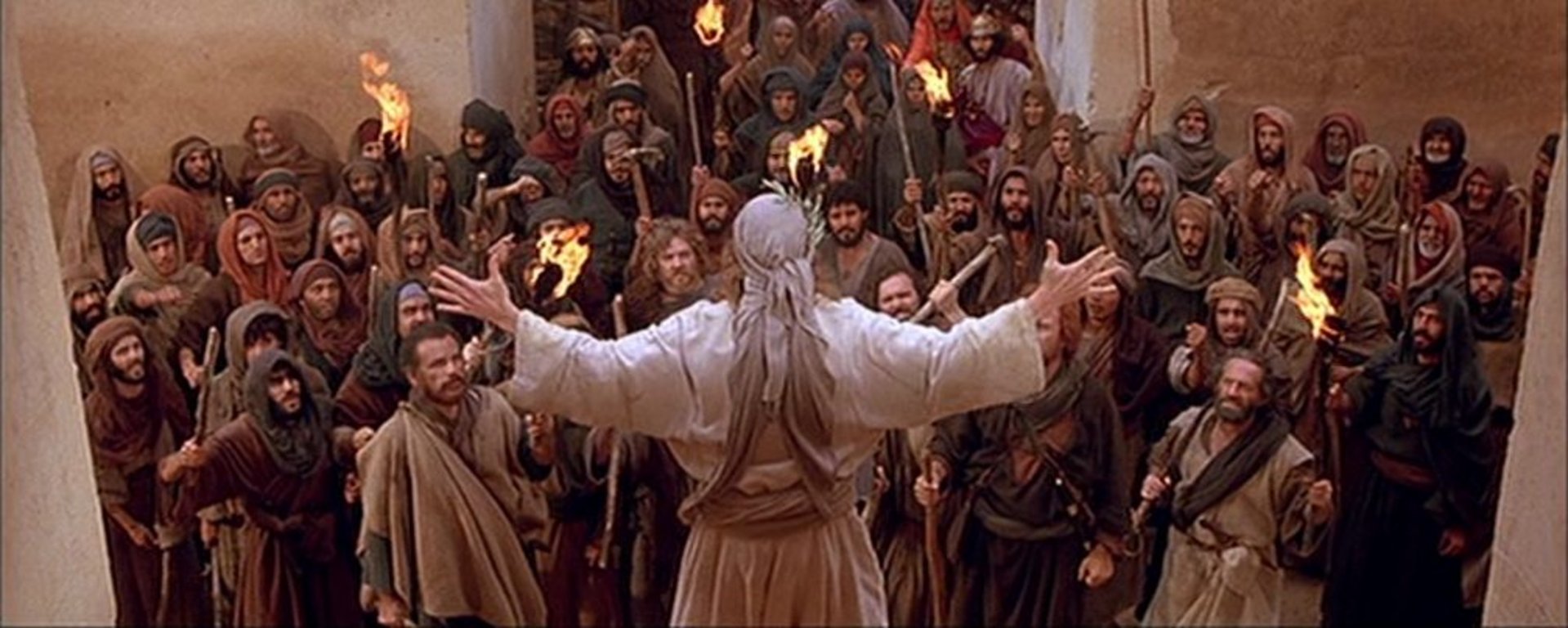
The Last Temptation Of Christ
Submitted for classification in 1988, this dramatisation of the adult life of Christ attracted notoriety some time before it reached the BBFC. Press reports suggested that the film would contain a 'blasphemous' scene in which Christ fantasises on the cross about making love to Mary Magdelene. The BBFC received nearly two thousand letters and petitions from the public and pressure groups, a majority anxious about what they regarded as potentially blasphemous content, and the minority supporting the film's uncut release in the UK.
In fact, the film was not based on the Gospels themselves but on a famous 1952 novel by the Greek author, Nikos Kazantzakis (author of 'Zorba the Greek'). It had been widely available in the UK in an English translation since 1961 without protest being raised or blasphemy charges brought.
The BBFC took the unusual step of inviting twenty-eight representatives of the major Christian churches to view the film at the BBFC, and also took legal advice from a QC before making a decision. All who saw the film at the BBFC agreed that the film was not blasphemous in the legal sense, although it might have the capacity to offend some Christian viewers.
In order for a work to be considered blaphemous at law, it must contain material that is 'contemptuous, reviling, scurrilous or ludicrous' in relation to God or Jesus Christ. However, the film seemed to all who saw it to be sincere in intent, reverent in atmosphere and in no way contemptuous of its subject. Indeed, the sequence that had aroused controversy was in fact an exploration by Kazantzakis of what it means to be both a man and God by envisaging what Christ's life may have been had he not given his life. Ultimately the film affirms the supreme importance of his sacrifice.
The film was passed 18 in 1988 without cuts and subsequently viewed by the Director of Public Prosecutions who supported the BBFC's decision that the film was not likely to be found guilty of blasphemy by a Jury. A handful of local authorities took the decision to ban the film, on the grounds of possible offence (in response to petitions against it) rather than blasphemy. Nonetheless, controversy surrounding the film receded after its release and in 2000 the BBFC agreed to reclassify the film, for DVD release, down to 15.
In 2008, section 79 of the Criminal Justice and Immigration Act abolished the common law offences of blasphemy and blasphemous libel. This means that the BBFC is no longer entitled to consider whether the publication of the film might comprise a blasphemous libel.